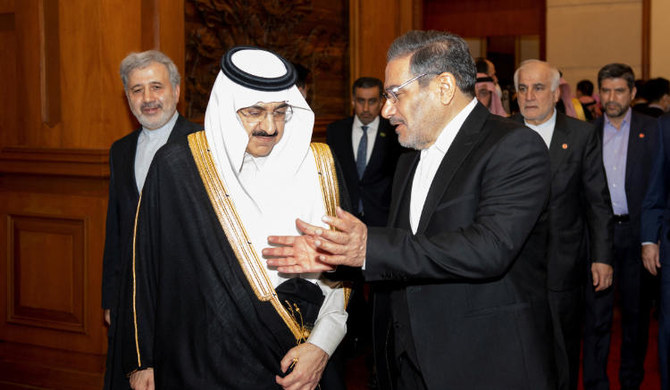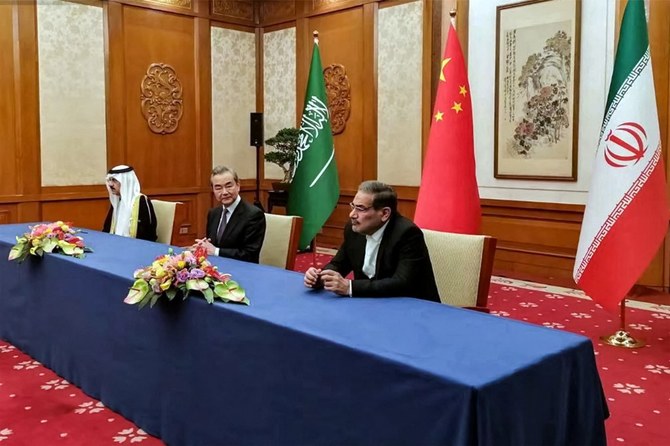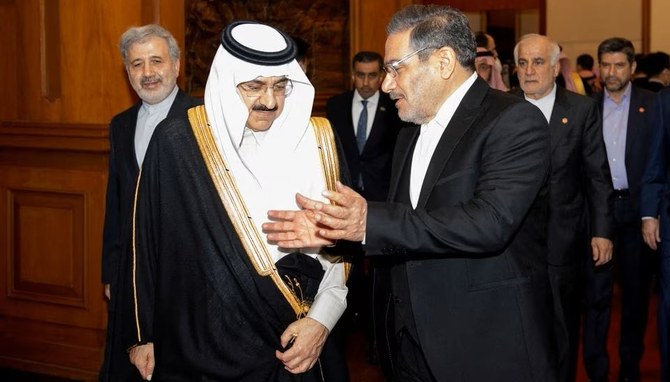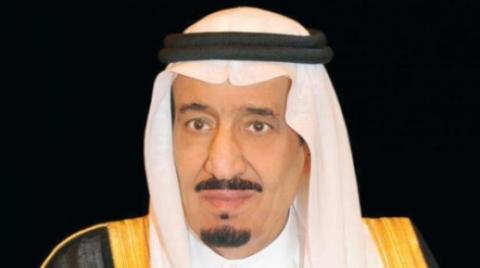
The 20th anniversary of the Iraq invasion has been overshadowed by the revelation of a Chinese-brokered Saudi-Iranian rapprochement. In hindsight, the Chinese role is a logical outcome of the need to fill the vacuum of US withdrawal from the region post-Iraq. It is also an opportunity for a revitalized GCC role with Saudi Arabia, the UAE, Qatar and Oman cooperating to bring stability to the region.
The details of the deal are not important. “The making of a treaty is the treaty itself,” according to Cardinal Wolsey who was King Henry VIII’s chief adviser. It does not matter what the terms are. Ultimately it is the goodwill that matters, not the terms. When the goodwill that brought the parties together runs out, the treaty is broken, whatever the terms say.
Timing is relevant in that it comes when Iran is at its weakest internally with continuing protests and Saudi Arabia possibly at its strongest. The region also deserves a break from the ups and downs it has witnessed since the Iraq invasion. There is a window here represented by the period when the goodwill will last, but it will not last forever.
GCC states, while bound by cooperation agreements, have also evolved in separate ways over the past 20 years. The result is that they have different contacts and alliances in the various conflicts of the region. When they were in competition, their interventions made the situation worse. But if they cooperate then the fact that they are in touch with opposing sides in places such as Yemen, Libya, Syria, Palestine, Lebanon, Egypt and Iraq will give them an advantage in helping resolve the problems often complicated by an Iranian role. They must not waste the opportunity that the agreement provides and must act while the goodwill is still there.
In the meantime, geopolitical experts are going wild analyzing the global significance of the deal, the winners and the losers: China’s new and unexpected role as a mediator in the Middle East and its rise to rival the US as a power broker; also the calculations and strategies of Saudi Arabia and Iran and the various possible scenarios. It is a useful exercise but there are too many uncertainties — the outcome of the Ukraine war, what looks like another global financial banking crisis in the making, and the result of the protests in Iran, Iraq and Lebanon against the Iranian regime and its proxy militias.
All parties involved in the Saudi-Iran agreement have found a way of declaring it a victory, except the Americans who were caught by surprise and must be working hard to find a positive angle. In 2003, the US invaded Iraq ostensibly to fix the region, then it changed its mind and left it in the lurch. In the best of all interpretations, the invasion did pull the region out of stagnation at a time when it looked like the descendants of Saddam Hussein, together with those of Muammar Qaddafi, Bashar Assad and Ben Ali, were going to rule forever.
Until the US decides who its friends and enemies are, seeking Chinese help seems to be the best option.
Nadim Shehadi
The fall of the statue of Saddam Hussein broke the myth of the power of dictatorships and inspired other movements in the region, culminating in what became known as the Arab Spring. Iraq itself looked like it was about to see better days after the successful “surge” of 2007-08 when the US announced a new way forward and brought in more troops who collaborated with Sunni tribal leaders to oust Al-Qaeda from Iraq.
At the time, in 2009-2010, international organizations wrote glowing reports that Arab regimes had understood the message and were reforming. The regimes may have fooled the bureaucrats at the UN, the EU, the World Bank and the International Monetary Fund but they did not fool their own people. Revolts against dictatorships rose in Tunis, Libya and Syria and for a short while it did look like we were heading toward a brighter future with freedom and democracy.
Then it dawned on us that the US had changed its mind; it was as much of an internal American soul-searching about its role in the world as it was about learning the wrong lessons from the Iraq war. There was the manner in which the Barack Obama administration withdrew from Iraq, together with the decisive moment in September 2013 when the president backed off from enforcing the red line he drew over the Assad regime’s use of chemical weapons against civilians.
Later, Iranian and Russian interventions to save Assad were also ignored, resulting in the destruction and starvation of cities and millions of refugees. Syria was sacrificed for a nuclear deal with Iran. We heard justifications such as “why should we be the policeman of the world” or “well, let’s not forget that America has done some really bad things” and “we only make things worse” or “we make peace with enemies not with friends” or “we are focused on Daesh.” Syria’s descent into hell destabilized the whole region and the ripple effects disrupted the EU with the resulting refugee crisis.
Except for a short interlude during the Donald Trump presidency, the US under Obama and Joe Biden has been mostly blind to Iran’s interventions in Palestine, Lebanon, Syria, Iraq and Yemen. We heard explanations that the Houthis, Hezbollah, Hamas and Islamic Jihad or the various militias in Iraq were local organizations with a local agenda and could not be reduced to proxies of Iran. Then there was the September 2019 drone and missile attacks on Saudi Aramco facilities in Abqaiq and Khurais; the January 2022 attacks on the UAE’s Mussafah oil refinery barely noticed by Washington.
If the Iraq war resulted in the US pulling away from its role as a superpower in the region, it took the Ukraine war and the Iranian protests, with parallels drawn with Russia and Iran’s role in Syria, to again disrupt America’s soul-searching moment and hopefully lead to a review of its relations with its allies. In the meantime, and until the US decides again who its friends and enemies are, and shakes itself out from the trauma of its Iraq invasion, seeking Chinese help and guarantees seems to be the best option.
• Nadim Shehadi is a Lebanese economist. Twitter: @Confusezeus












